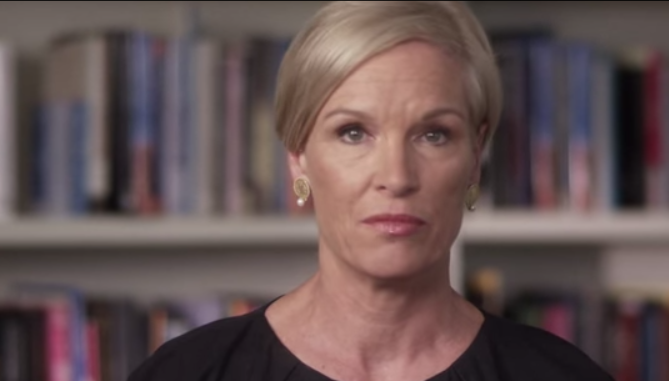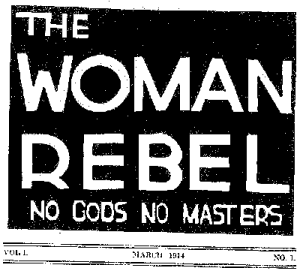 AMES, Iowa — The president of the abortion and birth control giant Planned Parenthood told an Iowa radio station this week that she doesn’t know when a baby has constitutional rights, and that it’s “not the problem we are facing in America.”
AMES, Iowa — The president of the abortion and birth control giant Planned Parenthood told an Iowa radio station this week that she doesn’t know when a baby has constitutional rights, and that it’s “not the problem we are facing in America.”
Cecile Richards, daughter of former Texas Gov. Ann Richards, has been campaigning this week in Iowa for Democratic presidential candidate Hillary Clinton, and on Tuesday was interviewed by WHO Newsradio.
During the conversation, host Doug Wagner noted that Hillary Clinton has stated that the unborn don’t have constitutional rights under the law, and asked if Richards believes it should stay that way.
“Is that something that needs to be changed in your opinion, or should we be fine with an unborn person not having constitutional rights?” Wagner asked.
“Abortion is a very personal issue for folks, and we work at Planned Parenthood to make sure that every woman has all the information that she needs and access to health care,” Richards said. “People really believe that women should be able to make their own decisions about their pregnancy, whether that is to have a child, whether that is to give the child up for adoption … or to terminate the pregnancy.”
“Those are decisions that are best made by women and not by politicians,” she continued. “I think what we need to do, and we can do, and I certainly think Hillary Clinton would do as president, is to ensure that everyone has access to the healthcare they need and that we can work to do to reduce unintended pregnancy, which is the basic problem in the first place.”
Richards opined that under a Trump/Pence presidency, birth control would be less available to women.
“Okay, but I didn’t get an answer to the question with regard to the unborn person, and there is no unconstitutional rights,” Wagner noted. “At what point does that child, that unborn person or fetus—whatever you want to call it—at what point does that baby get the constitutional rights?”
“Well, I don’t really actually—I don’t know that there’s an exact answer for that,” Richards replied. “There are, as you know, restrictions on women’s ability to terminate a pregnancy and when they can, but until a pregnancy is viable they have the right to make that decision.”
“I think it really—Honestly that’s not the problem we are facing in America,” she deflected. “What we are facing in America is the fact that women in many states have fewer rights to access basic health care. And again, I think it’s really important that we be honest here about birth control. … To me, that’s what government should be focused on.”
Wagner stated that he wasn’t talking about the pregnancy per se, but about the constitutional right of the unborn person that is “separate and distinct.”
As previously reported, this past April, Clinton had been asked on NBC’s “Meet the Press” to provide her “straightforward position on the issue of abortion.”
“My position is in line with Roe v. Wade, that women have a constitutional right to make these moment intimate and personal and difficult decisions based on their conscience, their faith, their family, their doctor,” she replied. “And that it is something that really goes to the core of privacy. And I want to maintain that constitutional protection.”
Host Chuck Todd then asked Clinton if unborn children have rights, and if so, to outline when. She replied by referring to the unborn as persons, but asserted that they don’t have rights under the U.S. Constitution.
“Well, under our laws currently, that is not something that exists. The unborn person doesn’t have constitutional rights,” she said.

Planned Parenthood, originally known as the Birth Control League, was founded by Margaret Sanger, who also authored the newsletter “The Woman Rebel: No Gods, No Masters.”
“Birth control itself, often denounced as a violation of natural law, is nothing more or less than the facilitation of the process of weeding out the unfit, of preventing the birth of defectives or of those who will become defectives,” she wrote in “Woman and the New Race. “If we are to make racial progress, this development of womanhood must precede motherhood in every individual woman.”
Just last week, Democrats in the Senate proposed a resolution to celebrate the 100th year of Planned Parenthood, opining that birth control has helped to advance America’s economy because it keeps women in the workforce instead of being mothers.
“[B]reakthroughs in women’s health care, such as the legalization and expanded availability of birth control, have been named one of the biggest economic advancements for women in the past 100 years,” the resolution reads.
“[C]hanges in women’s access to reproductive health care have led to cultural shifts: in the United States, women are now nearly half the workforce, the sole or primary breadwinners in 40 percent of homes, and more than half of the college students.”
Become a Christian News Network Supporter...


